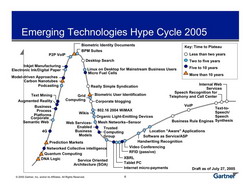As day passed, news started to flow, making Weblogs Inc. buyout by AOL the news of the week at least, but certainly a story that will keep the blogosphere busy for a while and will throw bloggers in long debates on the subject.
First of all, some more interesting aspects on the deal itself. It seems like bloggers of the Weblogs Inc network found this out from another blog (jeez, this is sort of funny). Then Darren Rowse from ProBlogger broke in and reveiled some more details of the deal:
- WIN are selling to increase the resources that they couldn’t provide otherwise (offices, technology, people, infrastructure) as well as extra traffic.
- Nothing is changing – in terms of management which will continue to run WIN as an independently operated AOL company
- WIN headlines will start appearing on AOL home page, netscape, AIM etc
- Bloggers will need to sign a new contract shortly which will allow bloggers to own their own content for offline use
- The contract will contain other features yet to be announced that are favorable to bloggers
- There is no increase in pay mentioned but allusions to more money in the network due to the deal
On the other side Darren mentions that reaction from WIN bloggers is for the most part very positive with the news that Jason staying on, while a blogger from the network mentioned this morning:
I’m not wearing any damn AOL tshirt, and I sure as hell aint telling anyone how much I love their service.
As for myself, while I do believe the part with the t-shirt, I won’t be so sure about the last part of its sentence on the long run, and this kind of things don’t make me be so thrilled about this deal. I really expect to see a lot of cross-promotion between the network and AOL owned offline and online titles, and that will be probably the least that might happen.
I have to agree more with Nick Denton of Gawker Media who quickly denied false rumors that the Gawker Media blog network is currently for sale:
The acquisition of WIN by AOL is exhilirating news, in many respects, most of which I shouldn’t list here. For what it’s worth, Gawker isn’t for sale. The whole point about blogs is that they’re not part of big media. Consolidation defeats the purpose. It’s way too early.
Without denying the business aspects of the deal and the huge amount of money, for a 2 years old company, that Weblogs Inc. got I also have to admit I tend to agree more with Denton on this. I’m still found of weblogs as independent media, with no direct connection with the big-sharks companies.
More, it seems like there’s a bubble smell in the air:
John Battelle and Tim O’Reilly opened the second edition of the Web 2.0 conference this afternoon with an exchange along these lines: Battelle said that last year, the mood at the conference was simply, “We made it” — we survived the Internet industry’s dark winter. This year, he said, it’s more like, “Something really important is going on — let’s not screw it up.” O’Reilly added: “We are definitely running the risk of another hype cycle.” (via)
More on the bubble thing:
Techdirt: And Now Comes the Real Blog Bubble
MobHappy: Weblogs Inc Sells to AOL for $25 million
Tags: AOL, Weblogs Inc, Calacanis, Gawker Media, Nick Denton

